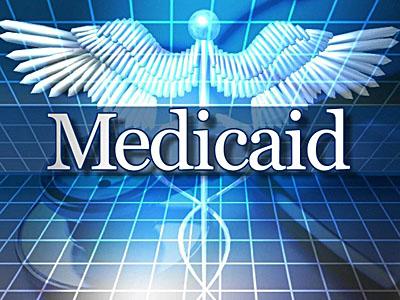Oregon study, that Obamacare partisans constantly cited as “proof” that Medicaid improves health outcomes, doesn’t.
Here’s the abstract of the study:
Conclusions
This randomized, controlled study showed that Medicaid coverage generated no significant improvements in measured physical health outcomes in the first 2 years, but it did increase use of health care services, raise rates of diabetes detection and management, lower rates of depression, and reduce financial strain.
This is a disappointing result that raises obvious questions about Medicaid expansion, but I’d make several comments here. First, the study found that Medicaid patients had lower rates of depression. That’s a good health outcome! Second, Medicaid “nearly eliminated catastrophic out-of-pocket medical expenditures.” This suggests that poor people without Medicaid do get treated for catastrophic problems, but mostly in emergency rooms. Medicaid is certainly an improvement here even if the health outcome is the same.
Third, Medicaid coverage “significantly increased…the use of diabetes medication, but we observed no significant effect on average glycated hemoglobin levels.” This is odd, and I wish I had access to the full report to understand this better. Is it because diabetes medication is ineffective? Or what? [See update below for more on this.]
Fourth, Medicaid “increased the use of many preventive services.” This is almost certainly a positive development even if it had no measurable effect within the two-year window of the study.
Fifth, the study suffers from the usual problem of measuring “outcomes,” and suffers especially because it measured only a very limited set of outcomes (primarily chronic conditions like blood pressure, cholesterol, and diabetes). This has long been one of my pet peeves. The problem is that there are lots of things that improve your quality of life but don’t show up as an improvement in either mortality rates or glycated hemoglobin levels. If I have an infection, for example, a course of antibiotics is a godsend. More than likely, though, the infection would have gone away eventually on its own. Does that mean the medication was useless? Of course not. Ditto for arthritis meds, a better pair of glasses, a new hip, a root canal, or fixing a broken ankle.
The truth is that if you take a narrow view of “outcomes,” it’s hard to find a significant effect from most of our healthcare efforts. Nonetheless, improved access to Medicaid produces plenty of improvement in acute problems; better use of preventive care; and far better financial outcomes. This is all worthwhile stuff even if controlling chronic conditions remains a challenge.
Overall, I’m a little unclear about what the conservatives who are crowing over this study really think. They obviously believe that access to healthcare is a good thing for themselves. (At least, I haven’t heard any of them swearing off doctor visits.) But you can’t have it both ways. If it’s a good thing for us middle-class types, it’s a good thing for poor people too. Conversely, if it’s useless for poor people, then it’s useless for the rest of us too. So which is it?
POSTSCRIPT: One thing I’d be interested in learning is what most of the Medicaid money was spent on during this two-year study. If half of it went toward cholesterol and diabetes treatment with little to show, that’s a terrible result. If 5 percent went to those things, with the bulk being spent on more prosaic acute problems, then the result isn’t so bad after all. I imagine this data is available somewhere.
UPDATE: Austin Frakt and Aaron Carroll have read the full study and have some more detailed thoughts here. Notably, it turns out there were improvements in blood pressure, glycated hemoglobin, and cholesterol, but the size of the study was fairly small, so the results weren’t statistically significant. Specifically, as Sam Richardson tweets, “#Oregon point estimates: Reductions of 30% in depression, 18% in high HbA1c, 17% in high chol, 8% in high BP. Big effects, little power.” As Austin and Aaron note, this is very, very different from saying there was no effect.














